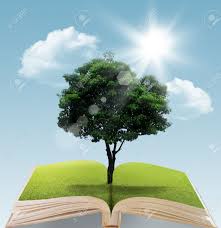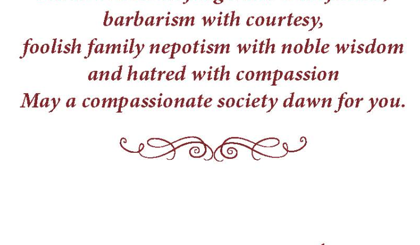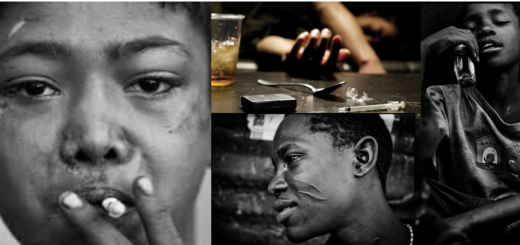Sri Lanka’s Education: Changing the System by whom, for whom & why!

There is much talk of late about Sri Lanka’s education system. It is definitely a prudent subject as the country’s assets are its citizens and it is the citizens that must protect and preserve the country & all that it stands for. In discussing the subject we first need to be aware of some ground realities and fundamentals.
The education system we follow today is what we have inherited from colonial rule. Essentially, it was a system aimed to usurp the nationalist feelings of the people and align them towards western values and create groups of brown sahibs to take over once colonials left. With all that it is a wonder that we have managed to preserve the Sinhala identity, cultures and traditions all these years and there are still youngsters amongst us who feel proud to continue it to the next generations.
Education cannot remove Sri Lanka’s History
This trait of pride in one’s nation, one’s history & heritage must be embedded into the education system as the older generations that passed on their tales of pride are departing leaving only what is written to carry the beacon forward. Which is why the education system must ensure that the proud history & heritage of Sri Lanka must be rolled out to all types of schools (public/international/semiprivate) in any medium of education (Sinhala, Tamil, English)
Is this being addressed by the current text books. Hardly so, there are inconsistencies in the history texts, governments and officials have been tweaking history to their advantage, committees have not monitored and corrected the mistakes. Therefore, a patriotic panel must first be appointed to take history books from all grades in all mediums and ensure the correct history is printed and circulated and not the history to satisfy the fairy tales of some or their political agendas.
What ails Sri Lanka’s present education system?
- Memorizing not Learning: Should we continue this form of education system or should we phase out a change at all grades?
- Every change of govt results in change of education system: every minority alliance deems it their right to change education system. Every minister changes system to his/her whims & fancies – this must stop.
- How updated are textbooks & teachers? Is school syllabus regularly updated and in keeping with the changes happening locally & globally?
- School standards: Do all schools have the basic standards? No changes to education system can be rolled out if fundamentals in all schools are not equal.
- How equipped are schools? Do all schools have similar lab facilities / computers or is it true some schools lack even a basic school building/clean toilets/chairs and desks in good condition/electricity and electric systems to use multimedia etc
- Quality of Teachers: How many of todays’ teachers be they in public/private/international schools are trained to teach and love to teach or are they only teachers for a job? How many teachers are actually qualified to teach / how many teachers enjoy teaching/how many teachers are able to uplift the students, guide, counsel & motivate them?
- What do exams aim at? Are exams structured to test the knowledge or do examiners want to ensure students fail because governments cannot afford to have students qualifying beyond a number?
- Lack of essential life skills (handiwork/first aid/basics for everyday/hygiene expanded to teaching how to grow plants/love animals etc depending on the grade) these essential life skills must be included to school learning hours.
- Teach them basic everyday conversation skills – Tamil for Sinhalese & Muslims / Sinhalese for Tamils & Muslims. Leave out heavy writing and reading. Stick to basic conversational skills so all can communicate and there onwards leave it to them to advance what they know.
- Grooming sessions – how to dress/ eat / cultural values / respect for elders etc
- English language basics to write / read / understand / habit of reading newspapers & referring dictionary & practical sessions to regularly practice as this is more than sufficient to carry forward to world of work – this is more than enough for any child to build up their English to higher levels.
- Study education systems of countries but don’t just cut & paste it to Sri Lanka – fine tune it to suit Sri Lanka
Why do parents want a good education for their children?
Every parent wants their child to pass at least the minimum level to qualify them to do a job, to continue further studies or engage in any entrepreneurial activity to suit their talent.
With that education the parents expect the child to learn his/her mother tongue, an additional language that will assist their job and the ability to excel in a subject that can help them rise in life. This is why it is important that the syllabus of important subjects like Maths, Science, Commerce etc be updated so that students are learning areas that are not outdated.
Why does a Govt need an educated society?
Sri Lanka has 10,194 government schools with 4.1million children and 241,591 teachers. 167,907 qualified to gain admission to university in 2018 but only 31,451 students were admitted.
4.1million children attend school
(3million Sinhala / 1million Tamil / 84,720 in English)
322,135 grade 1 admissions (2017)
10,194 government schools
(National schools – 353 /Provincial Schools – 9,841)
Of the 353 national schools 37 are in Colombo.
National schools represent a mere 3.5% of all schools, but almost 19.5% of students are in national schools.
9% of schools have less than 5 teachers
14.6% of schools have less than 50 students & just over 5000 have less than 200 students.
Medium of instruction in Schools –
Sinhala only 6,332 (62%)
Tamil only 3,009
Sinhala & Tamil 75
Sinhala & English 558
Tamil & English 173
Sinhala, Tamil & English 47
There are 241,591 teachers
Graduate teachers 106,756
Trained teachers 129,638 – Teachers qualified with teacher Training colleges/ National Colleges of Education certificates and teachers having 2 years’ diploma in Science/Mathematics
Untrained teachers 3,311 – 2-3 years’ diploma holders (absorbed to Sri Lanka Teacher Service)
Trainee teachers 1,293 – Teachers not absorbed to Sri Lanka Teacher Service
Other teachers 593 – Teachers paid by other government institutes and teachers paid by nongovernment institutes / organizations.
About 97.9 % of the teachers in government schools are either graduates or trained teachers.

Only 1.8% students in Sri Lanka study in English medium & 30% live in Western province.
Of the 10,194 government schools only 5,643 schools have computer facility (55%) – 69% of this 5643 schools is in the Western Province.
There are 10,194 government schools 241,591 teachers & 416,5964 students.
There are 80 private schools of which 36 are fee-levying with 6555 teachers & 136,462 students.
There are 265 international schools with 56,919 students & 4927 teachers.
Now let’s look at the results: 2018
518,184 sat for O/L – 71.66% qualified to do A/L
9413 students scored 9As for O/L
321,469 sat for A/L – 167,907 students gained admission to university
No. of Universities – 15
No. of Other Higher Educational Institutions – 19
No. of Students (Undergraduates) 2018
Universities – 94,681
Institutes – 3,633
Open University – 24,453
No. of Students (Postgraduate) – 32,849
New admissions for degree – 31,451 students
No. of Lecturers – 5,940
Only 1,176 enter to do medicine
Only 1,713 enter to do engineering
In 2018, 167,907 qualified to gain admission to university but only 31,451 students entered – what was left for 136,456 to do? Some would have gone overseas, some would have followed a private course, some would have given up studies and gone into employment etc.
EMPLOYMENT
5million in private sector & according to World Bank contributes more than 60% to Sri Lanka’s GDP of which 20% comes from the service sector.
437,797 unemployed in 2019 – about 45,000-50,000 unemployed graduates.
Public and semi government sector employees, exceeds 1.3 million (government ministries, departments, provincial councils, and local government institutions as well as other public enterprises, government-owned institutions, and state banks – 2017)
(5.5% of total population)
This excludes uniformed staff of the three forces: Army, Navy and air Force)
84,000 public sector employees are above 55 years out of which about 61,000 are currently employed in either the state or the Provincial Public Sector.
190,498 public sector employees or 17 percent employees have not passed the GCE (O/L) examination.
290,378 graduates employed in public and semi government sectors.
A total of 225,000 or one out of five are working in the Colombo district.
More than 60% of public and semi government employees report the ability to use a computer but only 36% use computers to perform their official duties.
The difference in English education & Education in English
Census of Population and Housing data indicate that English literacy is just 22% among Sri Lanka’s population above 15 years of age.
When there is not sufficient English teachers to teach in all of the national schools and when the standard of that English is also not up to mark in what context are some proposing to conduct all subjects in the English medium? What is the standard of the 35,000 English teachers already teaching in English across Sri Lanka?
Are all public schools on par in terms of facilities (infrastructure / facilities / teachers etc)
Are economic conditions of students/parents able to pay for additional English education books etc?
Do we really need all subjects to be in English or should the English subject taught be taught well so that by end of O/L or at least grade 8 a child knows to read, write and understand English well enough to improve as he/she progresses?
What authorities cannot do is to remove the status given to the mother tongue – Sinhalese and Tamil language must remain first medium of language for all children & compulsory learning. No system change or English proposal can change or remove the mother language status.
Is this proposal for English education in all subjects one that subtly intends to import foreigners to teach English and draft their own syllabus and completely culturally change our children returning to the education format of colonial rule? Given the impossibility of rolling such a proposal across Sri Lanka given the lack of facilities and basic standards in schools, is this not going to create a social divide with the have’s on a higher pedestal to have nots and causing more social stigma and divisions resulting in more chaos?
Shenali D Waduge







